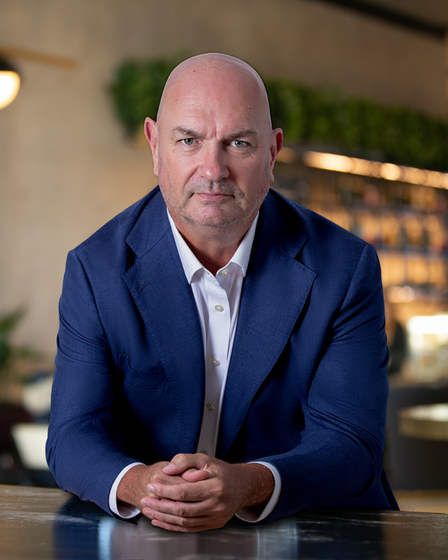About Us
We are dedicated to helping companies recruit exceptional executives who possess the skills, experience and expertise needed to navigate the complexities of the supply chain landscape.
Our Founder and Director, Grahame Doyle, brings a wealth of industry and recruitment knowledge and a deep understanding of the unique challenges and trends shaping the supply chain sector. We leverage our extensive network and strategic partnerships to identify and attract top talent, ensuring that our clients have access to the best candidates in the market.
At Davis James, we take a personalised approach to executive recruitment, working closely with both clients and candidates to understand their specific needs, preferences, and goals. Whether you are a multinational corporation seeking to fill a C-suite position or a high potential executive looking for your next career opportunity, we are committed to delivering tailored solutions that are designed to exceed your expectations.
Our comprehensive recruitment process encompasses rigorous screening, thorough assessments, and in-depth interviews to ensure that every candidate we present is a perfect fit for the role and the organisation. We go beyond matching skills and qualifications to consider cultural fit, leadership style, and long-term potential, ensuring long-lasting and mutually beneficial placements.
Transparency, integrity, and professionalism are at the core of everything we do at Davis James. We operate with the highest ethical standards, maintaining confidentiality and discretion throughout the recruitment process. Our goal is to build trusted partnerships with our clients and candidates, serving as a reliable advisor and advocate every step of the way.
As a leading executive recruitment agency in the supply chain industry, we are committed to staying ahead of the curve and adapting to the evolving needs of our clients and the market. We invest in ongoing training, technology, and industry research to ensure that we remain at the forefront of recruitment innovation and best practices.
Whether you are a company seeking top talent or an executive ready to take the next step in your career, we invite you to partner with us at Davis James. Together, we can unlock the full potential of your supply chain and drive sustainable growth and success.
Contact us today to learn more about our services and how we can help you achieve your recruitment goals. Let us be your trusted partner in building a stronger, more resilient supply chain for the future.

Meet Grahame
Grahame Doyle, our Founder and Director, is an exceptionally experienced recruitment professional. With over 2 decades of experience in executive recruitment, talent acquisition and senior management, combined with extensive expertise in the supply chain industry, Grahame has established himself as a trusted advisor and strategic partner to both candidates and clients alike.
Throughout his career, Grahame has honed his skills in identifying top supply chain talent and matching them with organisations seeking to optimise their operations. Grahame's unique knowledge of the supply chain industry sets him apart in the recruitment industry and, combined with his extensive network of industry contacts, enables him to provide unparalleled insights and guidance to his clients.
In addition to his recruitment expertise, Grahame is passionate about driving positive change within the supply chain industry. He is committed to promoting diversity and inclusion, championing sustainability initiatives, and fostering innovation and collaboration among supply chain professionals.
As a dedicated advocate for both his clients and candidates, Grahame strives to deliver exceptional results and build long-lasting partnerships based on trust, integrity, and mutual respect. His reputation for excellence and his unwavering commitment to client satisfaction make him a highly valued business partner.
Insights





